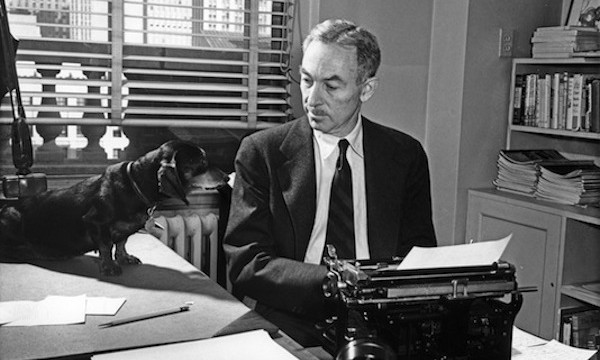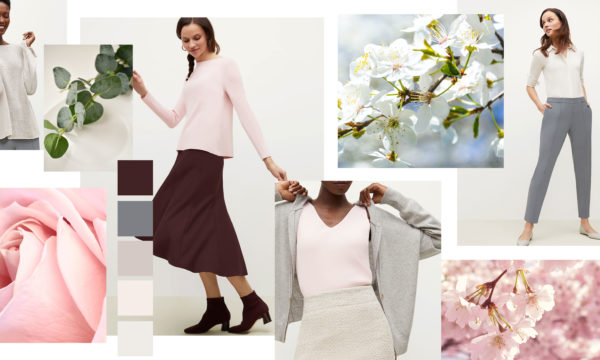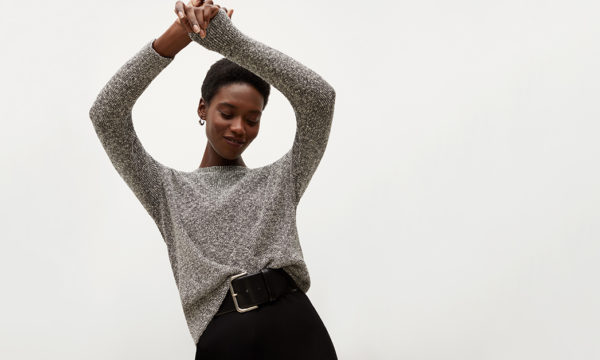
Shop This Look
When Drinking Doesn’t Feel Good Anymore
After a year of reasons to have a glass of wine at the end of the day, our Brand Editor decided it’s time for a Dry January. Here’s how it’s going so far and what she’s found helpful in the process.
Raise your hand if you feel like alcohol has become a bit of a crutch over the last year. It makes sense: we’ve been sheltered in place for 10 months; anxiety about the state of the world is at an all-time high; and many of us are trying to work from home with kids tugging at our sleeves all day. We haven’t been able to see friends in person, travel, celebrate holidays, or really plan ahead more than a day or two. Most days, 5pm (or 4pm, if we’re being honest) can’t come soon enough, and a glass of wine can feel like an exhale, a long-overdue hug from an old friend, a desperately needed moment to ourselves.
I know it isn’t just me. Everything feels bad right now, but wine—at least that first pour—still feels really good.
But how do you feel the next morning? Again, I can only speak for myself, but as I shuffle closer to 40, the hangovers—even from just two glasses of wine—are disorienting at best, debilitating at worst. With enough water and a decent breakfast, I can usually power through the day, but really only at 75%. Of course, this doesn’t stop me from mindlessly pouring myself another glass of wine while cooking dinner that evening, thus continuing the cycle. A familiar story, amiright?

“Women are often tasked with keeping the household running and taking care of children, more so than their male counterparts, which adds to the load and stress of other responsibilities—like their careers, for example,” says Hilary Sheinbaum, author of The Dry Challenge: How to Lose the Booze for Dry January, Sober October, and Any Other Alcohol-Free Month. “Alcohol is often promoted as the solution to ease these difficult problems. In memes, advertisements, TV shows, movies, and via peers, women are encouraged to open a bottle of wine to relax. So they drink—but the issues aren’t fixed. So they drink more.”
Knowing that I was in need of a reset—and that my relationship with alcohol is forever a work in progress—I decided to attempt the famous Dry January and give up alcohol for the entire month (with the caveat that I can have a glass of champagne on Inauguration Day). I wanted to feel all the side effects of sobriety: better sleep, clearer skin, pants that fit a little less snugly. I also wanted to make sure that while I was enjoying alcohol for a sense of comfort, I wasn’t actually dependent on it.
Two weeks in, I do feel physically and mentally healthier, but that doesn’t mean it’s been easy. I didn’t anticipate the attack on the Capitol, my daughter’s daycare closing due to a Covid scare, or my father-in-law gifting us a Bordeaux he’s newly obsessed with. Like a lot of people doing Dry January right now, I’ve experienced boredom, felt isolated, and sometimes wondered, “what’s the point?” At times, I’ve actually found it pretty difficult to find a reason not to drink. In a last-ditch effort to keep the momentum going, I put a call out on Instagram and Twitter for backup and support, and I was overwhelmed with the response. I thought I’d share some of them with you here, in case you’re attempting Dry January, too (or maybe Dry February—it’s a shorter month, after all) and need a little encouragement. We’re in this together, you know?
“I am happy to tell the tale of a woman in between relationships who has been dealing with this pandemic physically solo and spent all of November and December hungover and polluted,” wrote one woman in her 40s. “I’m in it. Dry January. Let’s do this.”
Another woman said that during shelter-in-place, drinking became something she used to numb her anxiety. “When everything else was out of control, at least I could control my escape,” she wrote. “I was lonely, single, sad, angry, scared—you name it. Dry January is a more socially acceptable way to stop drinking, I guess. The shame isn’t as overwhelming. But I know I’ll have to deal with the shame at some point, because that’s what is at the root of addiction. So I’m taking it one day at a time.”
“I had a somewhat problematic relationship with alcohol even before the pandemic,” another woman wrote to me. “Last year, I had actually managed to start getting sober before Covid hit. Then when that happened, I guess I just didn’t see the point anymore. I went into a total existential tailspin. So I’m not really doing Dry January so much as trying to quit alcohol for 100 days and then reevaluate my relationship with booze altogether.”

“I started Dry January but stopped it on January 6th, due to the coup,” wrote a New York City-based attorney. “I’m a little uncomfortable with my relationship to alcohol, and it’s something I’m trying to understand more in the new year.”
“I’ve done Dry January in the past, but this year it felt more important, because I felt the need to mentally, emotionally, and physically reset. In the place of drinking, I decided to try to invite some healthy habits in. I am increasing my water drinking, I’ve tried (unsuccessfully) to meditate more, and I’ve attempted to just be more present and aware. The white supremacist rally on the 6th almost broke me down enough to want a drink, but I didn’t have one.”
Beyond the kind words and solidarity from other women who are attempting Dry January, I’ve also found a few other things that have helped me power through: Quit Like a Woman, the Chrissy Teigen-recommended book on alcohol and women; an elongated bedtime routine that includes taking baths (cliché, but it works); and using that extra bit of sober energy at the end of the day to finally organize my closets. Are you attempting Dry January? I’d love to hear what is (or isn’t!) working for you. Shoot me an email at caitlin.abber@mmlafleur.com—and good luck!
If you are struggling with addiction and need help, visit alcohol.org for resources.








